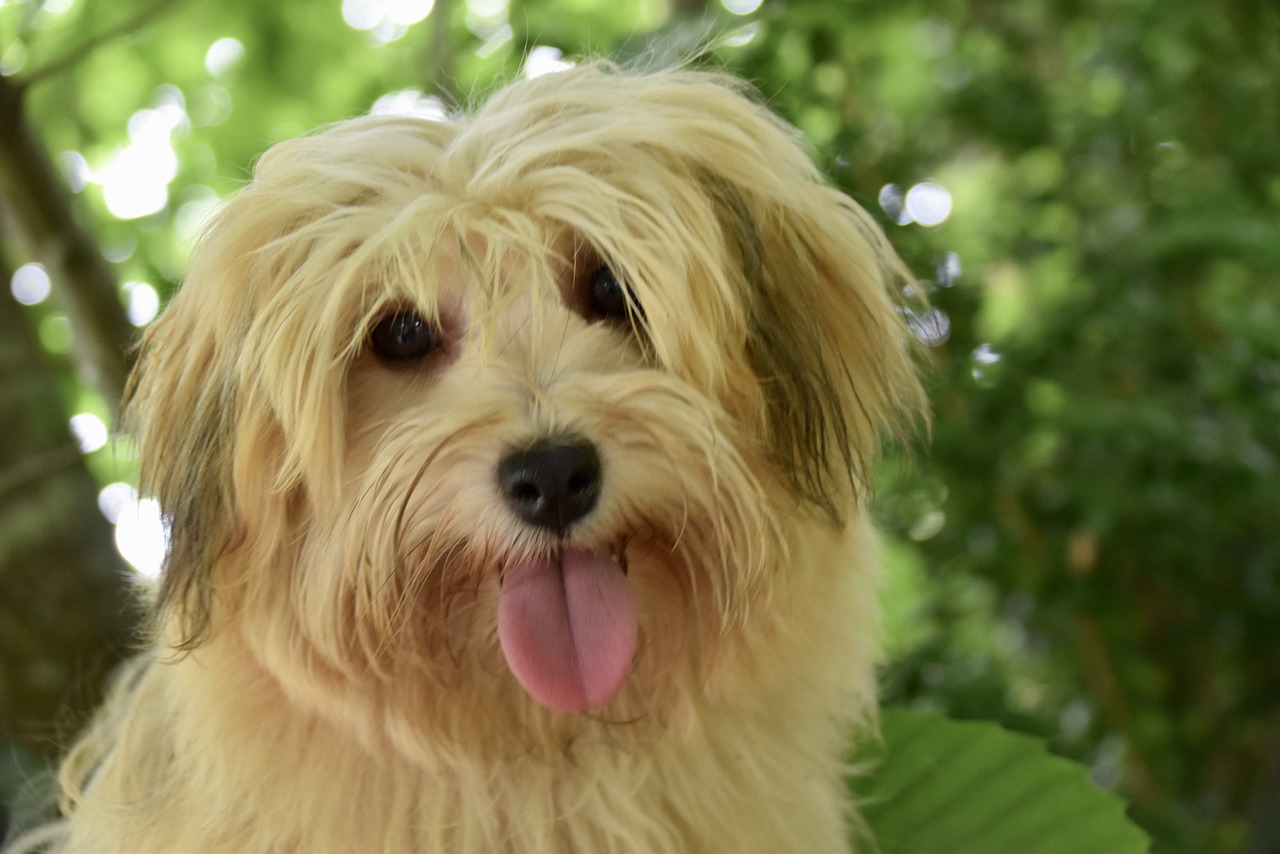
1. What is the average lifespan of a Havanese dog?
The average lifespan of a Havanese dog ranges from 14 to 16 years. This small but sturdy breed is known for its long life expectancy compared to many other dog breeds. Factors contributing to their longevity include their size, genetics, and the high level of care often provided by their owners. Proper nutrition, regular exercise, and routine veterinary care can help maximize a Havanese’s lifespan. Additionally, their generally cheerful and robust health reduces the risk of serious genetic diseases that can affect other breeds, making them a delightful companion for many years.
2. How can I extend my Havanese’s lifespan?
Extending your Havanese’s lifespan involves several key components, including providing a balanced diet, regular exercise, dental hygiene, and routine veterinary check-ups. A balanced diet tailored to their specific life stage helps prevent obesity and related health issues. Regular exercise not only keeps them physically fit but also mentally stimulated. Dental care is crucial, as poor dental health can lead to systemic diseases. Routine veterinary visits are essential for early detection and management of potential health problems. Providing a safe and loving environment can significantly contribute to their overall well-being and longevity.
3. What are the common health issues in Havanese dogs?
Havanese dogs are generally healthy, but like all breeds, they’re prone to certain health issues. These include hip dysplasia, a condition where the hip joint doesn’t fit properly, leading to arthritis; patellar luxation, a knee condition that can cause lameness; heart issues; and certain eye problems, such as cataracts and progressive retinal atrophy, which can lead to blindness. Additionally, they may suffer from dental issues due to their small mouths. Regular veterinary check-ups and a healthy lifestyle can help manage and prevent these conditions, ensuring a better quality of life.
4. At what age is a Havanese considered senior?
A Havanese is generally considered senior around 7 to 9 years old. This is when they may start showing signs of aging, such as decreased energy levels, more frequent health issues, and changes in their coat’s condition. It’s important to adjust their care to suit their aging needs, including dietary adjustments for older dogs, more gentle forms of exercise, and possibly more frequent veterinary visits to monitor their health closely. Recognizing and accommodating these changes can help ensure your Havanese remains healthy and comfortable in their senior years.
5. What diet is best for a Havanese?
The best diet for a Havanese is one that is well-balanced and suited to their specific life stage, activity level, and any health conditions they may have. A high-quality commercial dog food that meets the nutritional standards of the Association of American Feed Control Officials (AAFCO) is a good choice. For some Havanese, a diet consisting of lean proteins, healthy fats, carbohydrates, fiber, essential vitamins, and minerals can be beneficial. It’s also important to provide fresh, clean water at all times. Consulting with a veterinarian can help you choose the most appropriate diet for your Havanese.
6. How much exercise does a Havanese need?
Havanese dogs require moderate exercise to maintain their health and happiness. A daily routine of 30 to 60 minutes of physical activity, such as walks, playtime, or agility training, is typically sufficient. Despite their small size, they enjoy being active and can participate in various dog sports. Exercise helps keep them physically fit and mentally stimulated, preventing boredom and destructive behaviors. It’s important to adjust the intensity and duration of exercise based on their age, health status, and energy level.
7. How do I properly groom my Havanese?
Proper grooming of a Havanese includes regular brushing, bathing, and trimming to maintain their long, silky coat and prevent matting. Brushing should be done twice a week, if not daily, with a soft-bristle brush or comb to remove tangles and loose hair. Bathing every 3 to 4 weeks with a gentle dog shampoo can keep their coat clean and healthy. Additionally, their nails should be trimmed regularly, and their ears checked and cleaned to prevent infections. Professional grooming every few months can also help keep their coat in good condition.
8. Are Havanese dogs good with children?
Yes, Havanese dogs are generally good with children. They are known for their friendly, gentle, and playful nature, making them excellent family pets. Havanese dogs are patient and can form strong bonds with children, often enjoying their company and engaging in playtime. However, it’s important to supervise interactions between young children and dogs to ensure the safety of both. Teaching children how to approach and treat dogs respectfully is crucial for fostering a positive relationship.
9. Can Havanese dogs live in apartments?
Havanese dogs are well-suited to apartment living due to their small size and moderate exercise needs. They are adaptable and can be happy living in smaller spaces as long as they receive sufficient physical and mental stimulation. Regular walks and playtime can meet their exercise requirements, and their sociable nature makes them good companions for apartment dwellers. However, they do not like to be left alone for long periods, so it’s important to ensure they have company or enrichment activities when alone.
10. Do Havanese dogs shed a lot?
Havanese dogs are considered low shedders, making them a good choice for people with allergies. Their coat is long and silky and does not shed as much as breeds with double coats. Regular grooming, including brushing and combing, can help manage loose hair and prevent it from spreading around the house. However, it’s important to note that no dog breed is completely hypoallergenic, as allergens can also be found in their dander, saliva, and urine.
11. How often should I bathe my Havanese?
Havanese dogs should be bathed every 3 to 4 weeks to keep their coat clean and healthy. However, the frequency can vary depending on their activity level and lifestyle. Dogs that spend more time outdoors or get dirty may require more frequent baths. It’s important to use a gentle dog shampoo to avoid stripping their coat of natural oils, which can cause dryness and irritation. Regular grooming and brushing in between baths can help keep their coat in good condition and reduce the need for frequent bathing.
12. What kind of training does a Havanese need?
Havanese dogs are intelligent and eager to please, making them relatively easy to train. Basic obedience training, including commands like sit, stay, come, and down, is important for their safety and socialization. Positive reinforcement techniques, such as treats and praise, are effective in training this breed. Early socialization with people and other animals is also crucial for developing a well-behaved and confident dog. Havanese can excel in agility and obedience competitions due to their intelligence and agility.
13. Are Havanese prone to separation anxiety?
Havanese dogs can be prone to separation anxiety due to their strong bond with their owners and desire for companionship. They thrive on interaction and may become anxious or display undesirable behaviors when left alone for extended periods. To mitigate separation anxiety, it’s important to gradually acclimate them to being alone, provide plenty of mental and physical stimulation, and consider crate training a safe and cozy space for them when they’re not home. In some cases, professional help from a dog trainer or behaviorist may be beneficial.
14. What are the grooming needs of a Havanese puppy?
The grooming needs of a Havanese puppy include regular brushing, bathing, nail trimming, and ear cleaning. Brushing should begin early to get them accustomed to grooming routines and prevent the matting of their coat. Puppies should be bathed every 4 to 6 weeks with a gentle puppy shampoo. Nail trimming and ear cleaning should also be done regularly to prevent overgrowth and infections. Starting grooming practices early helps ensure that your Havanese puppy grows up comfortable with handling and grooming, which is essential for their health and well-being.
15. Can Havanese dogs handle cold weather?
Havanese dogs can handle cold weather reasonably well due to their thick, double-layer coat, which provides some insulation against the cold. However, they are a small breed and may be more sensitive to extreme cold temperatures than larger breeds. During colder months, limiting their exposure to cold weather is important, and consider using dog sweaters or coats to keep them warm during outdoor activities. Additionally, ensuring they have a warm, cozy place to sleep away from drafts can help keep them comfortable during the winter.


